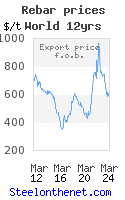Coal Producers Offer Perks to Draw Workers [BlackDiamond]
CHARLESTON, W.Va. (AP) -- Caught between strong demand and an ongoing labor shortage, some coal producers are offering pay hikes, improved benefits and bonuses in an effort to attract new miners -- and to keep existing employees from being raided by competitors.
"Companies are almost bidding for the experienced miner right now," said Bill Raney, president of the West Virginia Coal Association. "There's a lot of innovations that are being developed in the industry."
At Richmond, Va.-based Massey Energy Co., Central Appalachia's largest coal operator, electricians who sign a noncompete clause earn $25,000 in bonuses over three years.
Massey, which has increased its work force by 1,100 to about 5,600 since the beginning of 2003, has also developed several other measures to attract and keep its workers, such as zero-premium health insurance; a heath center closer to where most of its miners work; and discounted auto and home insurance policies.
Still, more than half of Massey's new employees are leaving before their first year on the job. And half of them are taking jobs with competitors.
Speaking at a recent investors' conference, Massey Chief Operating Officer Chris Adkins likened the movement of miners between producers to a "round robin play." When a competitor hires away an experienced worker, like an operator of mining machinery, "we immediately and go and hire a miner operator back from another guy," he said.
The prolonged surge in coal demand -- spot prices for some types of Appalachian coal have doubled since 2002 -- has led companies to reopen shuttered mines and add new ones. Sixty-nine mines opened in the region last year, according to the U.S. Energy Information Administration.
Coal fuels more than half of all electricity generated in the United States, and Appalachia's 390 million tons of coal represented about 35 percent of total U.S. production last year, according to the EIA.
Eastern coal executives openly acknowledge that the labor shortage is affecting their ability to hit production targets, said Luke Popovich, a spokesman for the National Mining Association. The most recent trough in coal demand left the cupboard bare when demand for labor started ramping up again.
"We sort of had a generation of mining people who simply weren't being recruited and that same phenomenon was being observed in mining schools," said Popovich. "Now that you need them, you've got fewer eligible miners and engineers."
It isn't always the promise of better compensation that lures away miners, said Mike Quillen, president and CEO of Abingdon, Va.-based Alpha Natural Resources.
"A lot of us in the coal industry were driving an hour, hour-and-a-half one way to the mines and some mines have reopened closer back to where these people were located," he said. "They were able to put two to three hours back into their personal life.
"You really can't do anything with wages and benefits" to change that, he said.
Northern Appalachian coal mines, like those operated in northern West Virginia and Pennsylvania by Pittsburgh-based Consol Energy Inc., have thicker coal seams that are better suited for longwall mining -- an automated technique that extracts more coal using fewer workers. So the labor shortage in that region has been less acute, said Consol CEO Brett Harvey.
"In the '70s, we mined 65 million tons of coal with 23,000 people," Harvey said in a conference call with analysts. "This year we will mine (around) 70 million tons of coal ... with about 7,800 people."
"So the need to replace these people is not as great," he said. "But ... we need more technical people."
While there is also a high demand for technical workers in the Western coal fields, the shortage there hasn't reached a level where it is affecting production, said Marion Loomis, the executive director of the Wyoming Mining Association. Wyoming is the country's top coal producer, mostly from surface mines.
Holding on to new underground coal miners is a particular challenge, because of the difficult working conditions and the more specific skills that need to be developed, officials said.
"(With) surface mining employees, you do have other industries and locations that those skills can come from," said Alpha's Quillen. "The real difficulty that I'm talking about is in our undergrounding, which there is really just not a lot of other industries that train people."
Training new workers at Massey surface mines, where some skills overlap with construction jobs, takes about two months, but it can take underground miners between six to 18 months to come up to speed.
"What's driving the turnover underground is the number of apprentice miners, and really there's not a practice coal mine to go and try to see if you like coal mining," said Jeff Gillenwater of Massey's human resources department. "And some of the workers in the industry just don't care for that type of mining."
Alpha has seen some success in getting new employees to join the company, said Quillen, but has struggled to advance miners into senior slots.
"We now need to concentrate on supervisory development to encourage some of our 30 and younger (and) 40-year-old people to move into the supervisory ranks, because it does take an experienced person to do that," he said. "And I don't see that issue in the industry getting any easier."
blogger@steelonthenet.com
"Companies are almost bidding for the experienced miner right now," said Bill Raney, president of the West Virginia Coal Association. "There's a lot of innovations that are being developed in the industry."
At Richmond, Va.-based Massey Energy Co., Central Appalachia's largest coal operator, electricians who sign a noncompete clause earn $25,000 in bonuses over three years.
Massey, which has increased its work force by 1,100 to about 5,600 since the beginning of 2003, has also developed several other measures to attract and keep its workers, such as zero-premium health insurance; a heath center closer to where most of its miners work; and discounted auto and home insurance policies.
Still, more than half of Massey's new employees are leaving before their first year on the job. And half of them are taking jobs with competitors.
Speaking at a recent investors' conference, Massey Chief Operating Officer Chris Adkins likened the movement of miners between producers to a "round robin play." When a competitor hires away an experienced worker, like an operator of mining machinery, "we immediately and go and hire a miner operator back from another guy," he said.
The prolonged surge in coal demand -- spot prices for some types of Appalachian coal have doubled since 2002 -- has led companies to reopen shuttered mines and add new ones. Sixty-nine mines opened in the region last year, according to the U.S. Energy Information Administration.
Coal fuels more than half of all electricity generated in the United States, and Appalachia's 390 million tons of coal represented about 35 percent of total U.S. production last year, according to the EIA.
Eastern coal executives openly acknowledge that the labor shortage is affecting their ability to hit production targets, said Luke Popovich, a spokesman for the National Mining Association. The most recent trough in coal demand left the cupboard bare when demand for labor started ramping up again.
"We sort of had a generation of mining people who simply weren't being recruited and that same phenomenon was being observed in mining schools," said Popovich. "Now that you need them, you've got fewer eligible miners and engineers."
It isn't always the promise of better compensation that lures away miners, said Mike Quillen, president and CEO of Abingdon, Va.-based Alpha Natural Resources.
"A lot of us in the coal industry were driving an hour, hour-and-a-half one way to the mines and some mines have reopened closer back to where these people were located," he said. "They were able to put two to three hours back into their personal life.
"You really can't do anything with wages and benefits" to change that, he said.
Northern Appalachian coal mines, like those operated in northern West Virginia and Pennsylvania by Pittsburgh-based Consol Energy Inc., have thicker coal seams that are better suited for longwall mining -- an automated technique that extracts more coal using fewer workers. So the labor shortage in that region has been less acute, said Consol CEO Brett Harvey.
"In the '70s, we mined 65 million tons of coal with 23,000 people," Harvey said in a conference call with analysts. "This year we will mine (around) 70 million tons of coal ... with about 7,800 people."
"So the need to replace these people is not as great," he said. "But ... we need more technical people."
While there is also a high demand for technical workers in the Western coal fields, the shortage there hasn't reached a level where it is affecting production, said Marion Loomis, the executive director of the Wyoming Mining Association. Wyoming is the country's top coal producer, mostly from surface mines.
Holding on to new underground coal miners is a particular challenge, because of the difficult working conditions and the more specific skills that need to be developed, officials said.
"(With) surface mining employees, you do have other industries and locations that those skills can come from," said Alpha's Quillen. "The real difficulty that I'm talking about is in our undergrounding, which there is really just not a lot of other industries that train people."
Training new workers at Massey surface mines, where some skills overlap with construction jobs, takes about two months, but it can take underground miners between six to 18 months to come up to speed.
"What's driving the turnover underground is the number of apprentice miners, and really there's not a practice coal mine to go and try to see if you like coal mining," said Jeff Gillenwater of Massey's human resources department. "And some of the workers in the industry just don't care for that type of mining."
Alpha has seen some success in getting new employees to join the company, said Quillen, but has struggled to advance miners into senior slots.
"We now need to concentrate on supervisory development to encourage some of our 30 and younger (and) 40-year-old people to move into the supervisory ranks, because it does take an experienced person to do that," he said. "And I don't see that issue in the industry getting any easier."
blogger@steelonthenet.com




0 Comments:
Post a Comment
<< Home